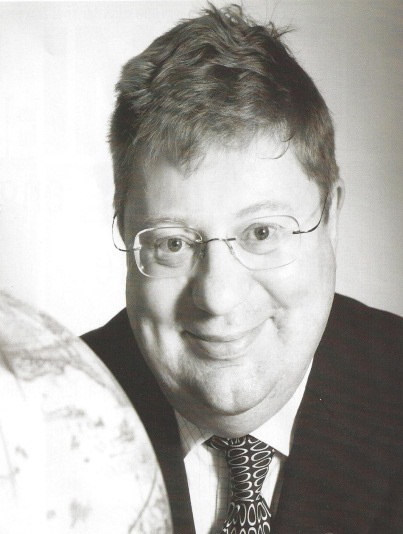 Biograph: Hugh D. Griffiths holds the THALES/Royal Academy Chair of RF Sensors in the Department of Electronic and Electrical Engineering at University College London, England. From 2006–2008 he served as Principal of the Defence Academy College of Management and Technology. He received the MA degree in Physics from Oxford University in 1975, then spent three years working in industry, before joining University College London, where he received the PhD degree in 1986 and the DSc(Eng) degree in 2000, and served as Head of Department from 2001–2006.
Biograph: Hugh D. Griffiths holds the THALES/Royal Academy Chair of RF Sensors in the Department of Electronic and Electrical Engineering at University College London, England. From 2006–2008 he served as Principal of the Defence Academy College of Management and Technology. He received the MA degree in Physics from Oxford University in 1975, then spent three years working in industry, before joining University College London, where he received the PhD degree in 1986 and the DSc(Eng) degree in 2000, and served as Head of Department from 2001–2006.
He served as President of the IEEE AES Society for 2012/13. His research interests include radar systems and signal processing (particularly bistatic radar and synthetic aperture radar), and antenna measurement techniques. He serves as Editor-in-Chief of the IET Radar, Sonar and Navigation journal. He has published over five hundred papers and technical articles in the fields of radar, antennas and sonar. He has received several awards and prizes, including the IEEE Picard Medal (2017), IET Achievement Medal (2017), the IEEE AES Mimno Award (2015), the IET A.F. Harvey Prize (2012) and the IEEE AES Nathanson Award (1996). He is a Fellow of the IET (previously IEE), Fellow of the IEEE, and in 1997 he was elected to Fellowship of the Royal Academy of Engineering.
Title: Spectrum Engineering and Waveform Diversity
Abstract: The RF electromagnetic spectrum, extending from below 1 MHz to above 100 GHz, represents a precious resource. It is used for a wide range of purposes including communications, radio and television broadcasting, radio navigation, and sensing. Radar represents a fundamentally important use of the EM spectrum, in applications which include air traffic control, geophysical monitoring of Earth resources from space, automotive safety, severe weather tracking, and surveillance for defence and security.
Nearly all services have a need for greater bandwidth. As the demand continues to grow for more access to spectrum by all these interested parties, there will be ever-greater competition for this finite resource. At the same time, modern digital signal processing techniques allow precise wide-bandwidth radar waveforms to be generated, with high spectral purity and whose properties can be varied adaptively, and this capability forms the basis of the subject of waveform diversity. The purpose of this tutorial is to describe and explain current work in spectrum engineering and waveform diversity, including the nature of the spectrum congestion problem, radar transmitter spectral purity, Passive Radar and Commensal Radar, approaches to spectrum regulation, and dynamic waveform optimization.